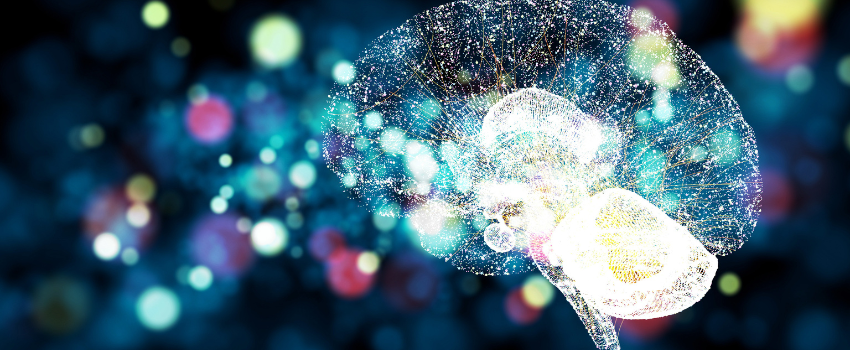2023 Project List
Welcome to the National Institute for Health and Care Research (NIHR) Maudsley Biomedical Research Centre (BRC) project list for potential candidates wishing to commence a PhD in October 2023 – we hope you will find a project which interests you.
The Maudsley BRC is a collaboration between the Institute of Psychiatry, Psychology and Neuroscience (IoPPN), King’s College London – the largest collection of researchers in Europe investigating mental disorders, and the South London and Maudsley NHS Foundation Trust – a leading mental health trust with a long tradition in joining clinical and academic excellence. Most NIHR Maudsley BRC researchers, staff and students are based at the IoPPN at the King’s College London, Denmark Hill campus which is adjacent to the Maudsley Hospital. Within this setting we offer the opportunity to join a thriving group of interdisciplinary researchers with internationally recognised supervisors and we ensure our students benefit from an understanding of the context of their research, producing scientists with a strong translational ethos.
The NIHR Maudsley BRC is dedicated to developing better treatments for people with mental and neurological disorders, which collectively cause most of the disease burden in Western societies. Within the BRC we offer projects which are clinically relevant and attempt to bring new innovation to help treat people with mental health disorders, brain disorders and other neurological conditions. This is the most exciting field in biomedical science, the least researched, the most important. And we offer an opportunity to gain research training in a vibrant and exciting centre where doctoral students are highly valued members of our team.
We hope we can look forward to receiving your application.
Professor Matthew Hotopf and Dr Rina Dutta
3-Year Studentships
Each of the projects listed below can be selected if you wish to apply for a 3-year PhD studentship. These 3-year PhD projects are grouped into the research themes Digital Therapies, Informatics, Pain and Addictions, Trials, Prediction and Genomics, plus Patient and Public Involvement and Engagement.
Please refer to individual projects for full information about each project, including the supervisory team, contact email addresses, two key publications and which BRC research theme/s the project aligns with.
Full details about the projects below are available on the 3-year studentship projects' page.
Digital Therapies
DT3-001 Developing a new online intervention to target transdiagnostic processes in anxiety and depression
DT3-002 Developing a digital intervention to support food-related quality of life and disordered eating in people living with inflammatory bowel disease
DT3-003 Inclusive human-centred design of novel therapeutic targets in a digitally supported therapy for psychosis
DT3-004 Improving access to an evidence-based digital therapeutic for treating depression and anxiety in long-term conditions (COMPASS) for Black Asian and Minority Ethnic (BAME) groups
Informatics
IN3-001 Evaluating the impact of medication side effects and increasing their recognition in clinical practice
IN3-002 Multimodal machine learning in electronic health records for prognosis and diagnosis of rare neurological disorders
Pain and Addictions
PA3-001 Using ecological momentary assessment to innovate the biopsychosocial assessment and treatment of pain in people with Parkinson’s
PA3-002 Understanding Pain Mechanisms of Central Sensitization in Humans Using functional MRI, Psychometric and Psychophysical Assessment
Trials, Prediction and Genomics
TG3-001 Polygenic stratification of mental disorders to explore differential environmental exposures, clinical profiles, and treatment response
Patient and Carer Involvement and Engagement
PP3-001 Patient and carer involvement in personalization and measuring treatment efficacy
4-Year Studentships
Each of the projects listed below can be selected if you wish to apply for a 4-year PhD studentship. These projects are categorised by the primary NIHR Maudsley BRC strategic goal applicable to each research study.
As many projects align with more than one strategic goal and more than one BRC research theme, we recommend you refer to all categories to ensure you consider all potential projects that interest you.
Information about the work taking place in each of the NIHR Maudsley BRC research themes is available on our Research pages.
Please refer to individual projects for full information, including the supervisory team, contact email addresses and two key publications.
Full details about each of the projects below are available on the 4-year studentship projects' page.
Whole Person Care
CO4-001 Using real-world evidence to emulate the cost-effectiveness of different treatment sequences of antipsychotic medication
CO4-006 What works in supporting people with mental health problems into work: a data linkage study
CO4-012 The iADJUST study: Examining the trajectories of depressive and anxiety symptoms among incident dialysis patients and testing the feasibility of a tailored psychological intervention to improve mental health outcomes
CO4-013 Suicidal behaviour: An investigation of online temporal trends and electronic health records
CO4-014 Social media, mental health and self-harm behaviour in young people
CO4-021 Biopsychosocial mechanisms underpinning the association between a singing intervention for mothers with postnatal depression and improvements in the mother-infant relationship
CO4-028 Identifying social and behavioural intervention targets to reduce the impact of cardiovascular disease on mental health
CO4-029 Making life with psychosis easier: evaluation of a portable, capillary sampling device to reduce the burden of routine monitoring of full blood count in people taking clozapine.
CO4-039 How does trauma-focused psychological therapy for dual diagnosis psychosis and Post-Traumatic Stress Disorder patients affect the mind and brain?
Translational Informatics
CO4-004 Identification of modifiable risk factors for increased health care use in people with dementia and developing opportunities for intervention
CO4-010 Feasibility and acceptability of speech and mood data collection in daily life after traumatic brain injury (TBI) using digital technology
CO4-011 Enhancing psychosis prevention through dynamic refinement of a clinical prediction model using machine learning
CO4-023 Infant Predictors of Behavioural and Developmental Outcomes in Early-Onset Epilepsy: Integrating Neurocognition and Electronic Health Records
CO4-026 Dissecting the Epigenetic Basis of Eating Disorders in EDGI and Nanopore DNA Methylation Sequencing Data
CO4-027 Identifying Drug Repositioning Opportunities Through Leveraging the Core Neurogenetics of Major Depressive Disorder
CO4-033 Using deep phenotyping informatics to map the prevalence, process and outcomes of people with neuropsychiatric disorders
CO4-036 Flexible machine learning models to capture the dynamics of patient outcomes at scale: learning from routinely- and remotely-collected health data
CO4-037 Cohort identification for mental health clinical trials: a knowledge graph approach
CO4-038 Developing an open-source speech analysis toolkit for clinical applications
CO4-045 Exploring Multi-omics based Machine Learning approaches for the prediction of disease progression and patient stratification in clinical trials of neuropsychiatric disorders
Precision Psychiatry
CO4-003 Neural Markers of Prospective Negative Thought in Anxiety, A Computational and Pharmaco-Physiological Analysis
CO4-009 Towards tailored treatment: Predicting real-world outcomes to first-line augmentation interventions for treatment-resistant depression
CO4-015 Biomarkers for Autism and ADHD using EEG Data with Regularized Multivariate Statistical Methods.
CO4-016 Understanding how anti-inflammatories help people with depression
CO4-020 Exploring the neurochemical and cognitive mechanisms underlying a novel EEG biomarker for autism.
CO4-022 Biomarker discovery using pharmaceutical challenge: shiftability studies to probe neural underpinnings.
CO4-024 Ketamine and reward: understanding the effects on function and physiology in responders and non-responders
CO4-025 Neuroimaging signatures of the antidepressant response to ketamine
CO4-030 Synaptic connectivity in Schizophrenia
CO4-031 Identifying trajectories of psychiatric risk and resilience during development (THRIVE)
CO4-032 The role of glutamatergic function in the neurobiology of treatment-resistant schizophrenia
CO4-034 Developing novel diagnostic biomarkers for Functional Neurological Disorder
CO4-035 Machine learning approaches to high-dimensional mediation: explaining outcomes following psychological therapy for anxiety or depressive disorders
CO4-041 Targeting Cognitive Inflexibility to Augment Anxiety Treatments for Autistic Youth: A precision psychiatry approach
CO4-042 Identifying a transdiagnostic biomarker of dissociative states in health and disease
CO4-043 Developing neurophysiological and cognitive biomarkers for antipsychotic response in First Episode of Psychosis
Novel Therapeutics
CO4-002 Uncovering GABAergic mechanisms in people at clinical high-risk for psychosis through pharmacological MRI
CO4-005 An experimental medicine study of cannabidiol (CBD) and dronabinol as treatments for cannabis use disorder in teenagers who regularly use cannabis
CO4-007 A multi-centre, double-blind, parallel-group, randomized controlled study to compare the efficacy of real versus sham external Trigeminal Nerve Stimulation (eTNS) on symptoms in youth with Attention Deficit/Hyperactivity Disorder (ADHD) (ATTENS)
CO4-008 Assessing a novel oculomotor biomarker of Attention Deficit/Hyperactivity Disorder (ADHD) and examining the efficacy of anti-saccade eye movement training as a novel intervention.
CO4-017 Shifting dynamic functional brain dynamics using pharmacological challenges in adults with and without autism spectrum disorder
CO4-018 Cannabidiol for psychosis in Parkinson’s disease psychosis
CO4-019 Experimental TESTing on Heroin and opioid OverDose: Environmental, Respiratory and Pharmacological Mechanisms (OD-TEST).
CO4-040 Virtual Reality Boosted Cognitive Remediation for People with Psychosis to Improve Recovery Outcomes
CO4-044 Using virtual reality to investigate sense of body ownership and agency in patients with functional neurological disorder and patients with schizophrenia.
CO4-046 Selectively shifting the GABA system in autism; a promising target for interventions?
CO4-047 Novel digital tools and therapies to improve the mental health of autistic people.
CO4-048 Transcranial Direct Current Stimulation and Virtual Reality Exposure Therapy for Anorexia Nervosa
Find out about the Application Process - Stages One to Three






